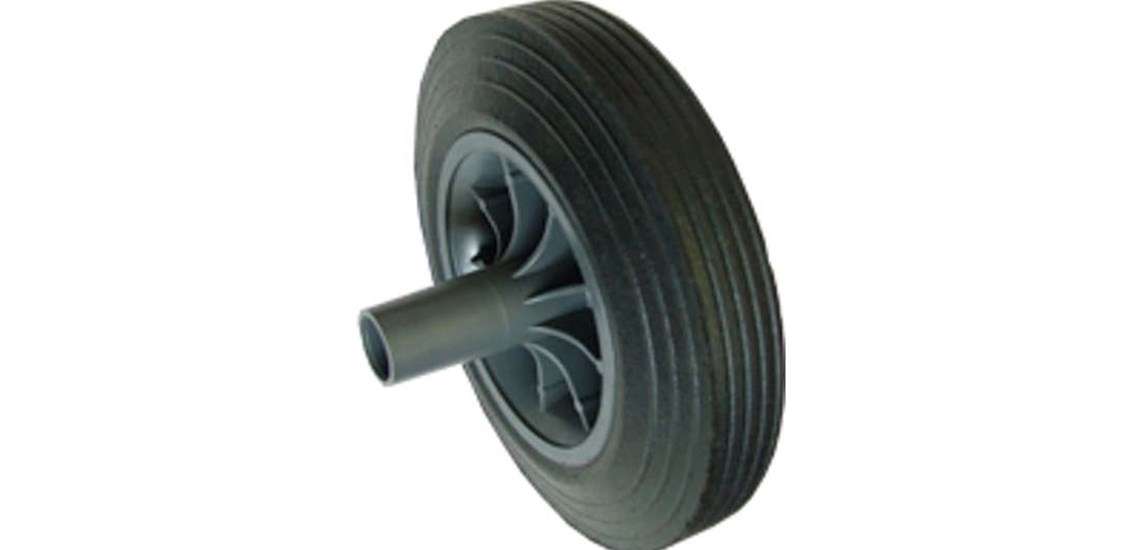For many, there is now an assumption that when our waste is taken away it will be recycled. If we, as consumers, keep an eye on the local authority statistics we will quickly realise that not all waste that can be recycled is recycled. This is usually because of a lack of facilities or because of contamination in co-mingled waste.
Wheely Bin Wheels Go to Landfill
However, when we think of products that might well have been made from recycled materials, such as wheely bins, or in this case the wheely bin wheels, there is an expectation of some circularity. Recycled rubber made into solid wheels, is a good thing, better that than virgin rubber being used where it is not needed.
However, these products are often marketed as being recyclable, and in theory they are. The “rubber” in a wheely bin wheel is low grade recycled rubber bonded with an elastomer to give a hard-wearing wheel that we are all familiar with from our household waste bins. The rubber wheels are mounted on a polymer hub – and here is where the problem starts. Both rubber and polymer are recyclable, but not whilst bound together in the wheel – they need separation before recycling. That has a cost, and the product is low volume, so nobody is actually recycling the recyclable.
At the recent RWM at Birmingham, UK, Tyre and Rubber Recycling was asked several times by people from local authorities and a wheely bin recycler, what can we do with these? How can we get them recycled?
There are hundreds of thousands of these bins being recycled every year, and all of their wheels are currently going to landfill – out of sight and out of mind. Except, in an ever-greener world, people are starting to ask about how they can deal with the unrecyclable.
In Sweden, SDAB produced a white paper that looked into the recycling hierarchy for waste rubber in a circular economy. It suggested that tyres should be used, retreaded, recycled as shred and granulate, used for various purposes, and the last stop in the cycle should be pyrolysis.
Pyrolysis, they argued, is where the unrecyclable recycled material should find its terminal destination. Pyrolysis is the solution for the unrecyclable wheely bin wheels, recycled sound insulation and other bonded rubber materials that cannot readily be recycled as new products.
In the UK, Carlton Forest Group is at the forefront of waste pyrolysis. The Group bought South African IRR, the manufacturer of its continuous pyrolysis process. The IRR plant can be used to process many polymer waste streams, and whilst the company is currently focusing on tyre pyrolysis, it has been reaching out to other sectors seeking to deal with different waste streams. Maybe this is a route that local authorities need to look at as a solution to dealing with difficult to recycle pre-recycled products.


















